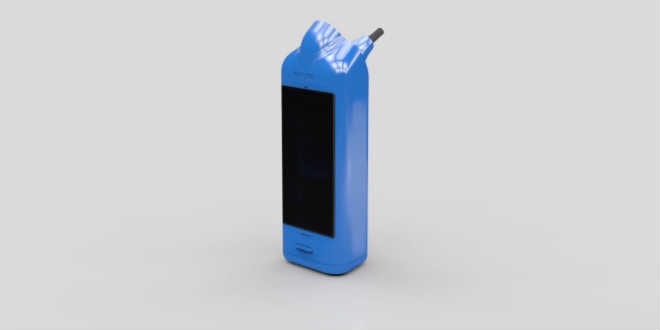“Behold, I will bring it healing and cure, and I will cure them; and I will reveal unto them the abundance of peace and truth.” (Jeremiah 33:6)

A new Israeli invention may help users avoid visits to the doctor by helping them perform home check-ups and sending the data to the doctor remotely. Tyto is being marketed as “an innovative handheld device enabling anyone, anywhere to perform an accurate physical examination for remote diagnosis.”
The device is named after a genus of owl which is small and mobile, with excellent sight and hearing. The handheld device is designed with the same features. By pointing the Tyto at various parts of the body, it can measure temperature, check heart rates, inspect skin and other organs, and evaluate the physical changes and abnormalities which could indicate illness. The information gathered can then be sent via the internet to a physician. Although nothing is as accurate as a complete physical examination, product developers believe the information provided by the Tyto can serve to reduce such exams by half.
CEO Dedi Gilad told Ynet how this device differs from its predecessors — smartphone apps designed to do similar tasks. “[Tyto] knows how the eardrum looks, how the heart and lungs sound and in what pressure it should be placed against the body, so it helps the user do the examination in an optimal way.” The quality of the samples recorded, as well, is unsurpassed.
According to the company website, Tyto benefits patients, doctors and health organizations alike by reducing wait times, overhead costs for clinics and unnecessary visits. The exam can be guided remotely by the physician or conducted entirely by the patient, following the instructions provided by Tyto itself. The information is transmitted securely and can be stored for future reference.
Tyto is expected to hit the markets next year, at approximately $200. So far, it has been tested in a children’s hospital in Spain and is due for another round of testing at another children’s hospital, this time in Boston. In Spain it was deemed highly precise — nearly as good as a traditional physical exam.




